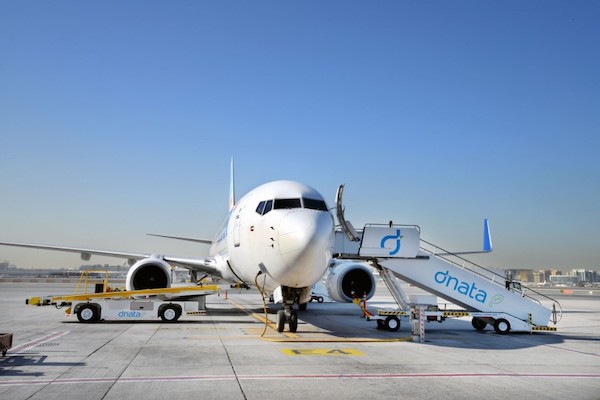A looming strike by catering workers in major UK airports is causing concern. More than 700 employees are casting their ballots, pointing to possible disruptions during the busy Christmas period. This action underscores significant tensions with dnata over proposed employment changes.
The employees, covered by Unite union, seek to address alleged alterations in work conditions by dnata. These changes are reported to be advancing without adequate consultation. The scenario highlights the broader implications for airlines during one of the busiest travel seasons, as uncertainty lingers.
Background and Context
Catering staff stationed at prominent UK airports, including Heathrow and Gatwick, are currently involved in a significant ballot for industrial action. Should they proceed, their actions are anticipated to disrupt services over the pivotal Christmas period, affecting numerous airlines. The dispute arises due to alleged unilateral changes dnata is imposing on employment terms, a claim staunchly contested by the union, Unite.
Unite, the union representing these employees, asserts that the firm’s management, part of the Emirates Group, has failed to consult on key changes. This includes alterations to rostering and other critical working conditions. Unite’s vocal opposition is rooted in a commitment to safeguarding their members’ rights and maintaining fair work practices across the board.
Implications for Airlines
A potential strike threatens to impact various airlines supported by dnata’s services. This includes aviation giants such as easyJet, Ryanair, and British Airways. Without resolution, disruptions could ripple through the aviation sector during one of its busiest times. The uncertainty imposed by the ongoing ballot and the potential for significant operational disturbances demand attention.
The union maintains dnata’s reluctance to negotiate paves the way for these potential issues. The impact on airlines is inextricably linked to the company’s operational decisions. Hence, any resultant delays or cancellations would fall under dnata’s accountability, according to aviation officers.
Union Stance and Support
Unite stands firm against the perceived unilateral changes by dnata, emphasising their advocacy for fair treatment and constructive dialogue. General Secretary Sharon Graham has made it clear they will resist any attempts to alter conditions without proper consultation.
Sharon Graham stated, “Dnata’s attempts to bypass its workers and force through damaging changes to terms and conditions will not be tolerated.” This underscores the union’s unwavering commitment to its cause.
National Officer for Aviation, Balvinder Bir, supports this sentiment, adding a call for meaningful negotiations with dnata. He warns of severe consequences should the company ignore the union’s requests.
Dnata’s Response
Dnata has expressed surprise at the union’s position, asserting their commitment to ongoing discussions. They refute claims of bypassing negotiations and insist on their readiness to engage.
Company spokespeople have indicated that proposals to improve wages and conditions have been rejected by the union. They argue that their offers reflect industry standards and aim at cost-of-living adjustments for employees.
Despite these assertions, Unite remains unwavering, interpreting dnata’s actions as insufficient. Their ballot continues, rallying worker support for potential strike actions.
Economic Impacts
The ramifications of a strike extend beyond immediate service disruptions. Potential economic consequences loom over the airlines and the hospitality sectors reliant on seamless airport operations. As the holiday season approaches, such disruptions could considerably affect travel plans and related businesses.
Strategic decisions by dnata will be crucial in avoiding economic fallout. The aviation industry must brace itself for potential setbacks if negotiations remain stalled.
Industry standards dictate that operational stability is critical, and any deviations could have lasting adverse effects on associated businesses and the market as a whole.
Stakeholders Involved
Several stakeholders, from airport authorities to travel companies, are invested in the outcome of this dispute. Their roles in the broader aviation field also mean they are attentive to potential operational changes.
Each party, including passengers, executives, and employees across sectors, has a vested interest in the results. This has turned the dispute into a focal point for industry discussions.
The focus now is on dnata’s next move; its decisions will set a precedent for how similar disputes might be handled in the future.
Historical Context and Precedents
Industrial actions within the aviation sector are not uncommon, though the timing and nature of this ballot are noteworthy. The history of similar disputes provides insights into potential outcomes.
The reaction of dnata in previous negotiations reveals patterns that could influence current discussions. Historically, outcomes have varied, with some disputes resulting in successful mediation and others, prolonged industrial action.
Past actions have set precedents that may affect dnata’s strategies and workers’ expectations. Understanding these precedents is critical in predicting how the current situation might unfold.
Potential Resolutions and Talks
There remains potential for resolution through open dialogue. Unite continues calling for dnata to engage constructively to address workers’ concerns and prevent past mistakes.
Any negotiations will need to carefully balance employee rights and dnata’s operational imperatives. Successful mediation would require concessions from both sides.
Current industry practices and expectations from employees could steer discussions. Both parties must weigh the benefits of compromise over conflict.
Public and Industry Reaction
The public response to this dispute has been varied, with travellers expressing concerns over potential holiday disruptions. Social media platforms have seen a surge in discussions around the issue.
Industry experts are closely watching developments, advising patience and hoping for a swift resolution.
Public interest remains high, with a focus on dnata’s strategic choices and the influence these decisions will have on travel during the peak season.
The resolution of this employment dispute hinges on open, constructive dialogue. Both the union and dnata must find common ground to avert widespread travel disruptions.

